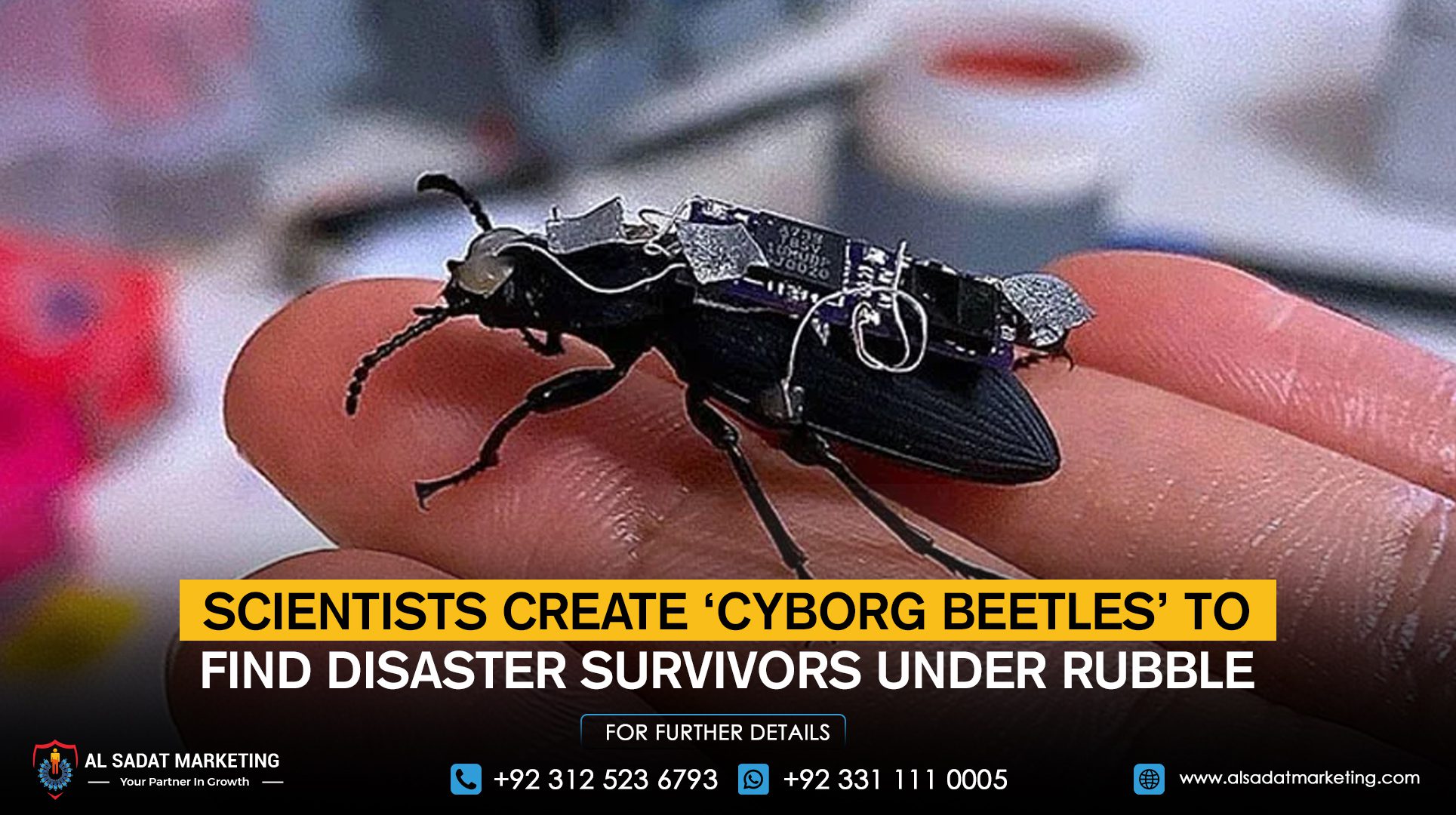Scientists at the University of Queensland have developed an innovative way to assist rescue efforts during disasters by transforming ordinary beetles into tiny search-and-rescue helpers.
The research team has equipped beetles with microchips and a small “backpack,” allowing remote control of their movements. These specially fitted beetles can crawl into narrow, hard-to-reach spaces, such as collapsed buildings or underground tunnels, to help locate people trapped after earthquakes, explosions, or landslides.
Researchers say the beetles could carry sensors capable of detecting human movement, heat, or sound in areas where rescue dogs or machines may struggle to operate. They believe this could reduce search times from several days to just hours, giving victims a better chance of survival.
Unlike large robots or drones, beetles require very little power, can move easily through debris, and are less likely to get stuck in rubble. The technology is still in testing, but scientists plan to trial it in simulated disaster scenarios before using it in real emergencies.
Experts hope that this low-cost, high-impact innovation could become a vital tool for rescue teams around the world.










